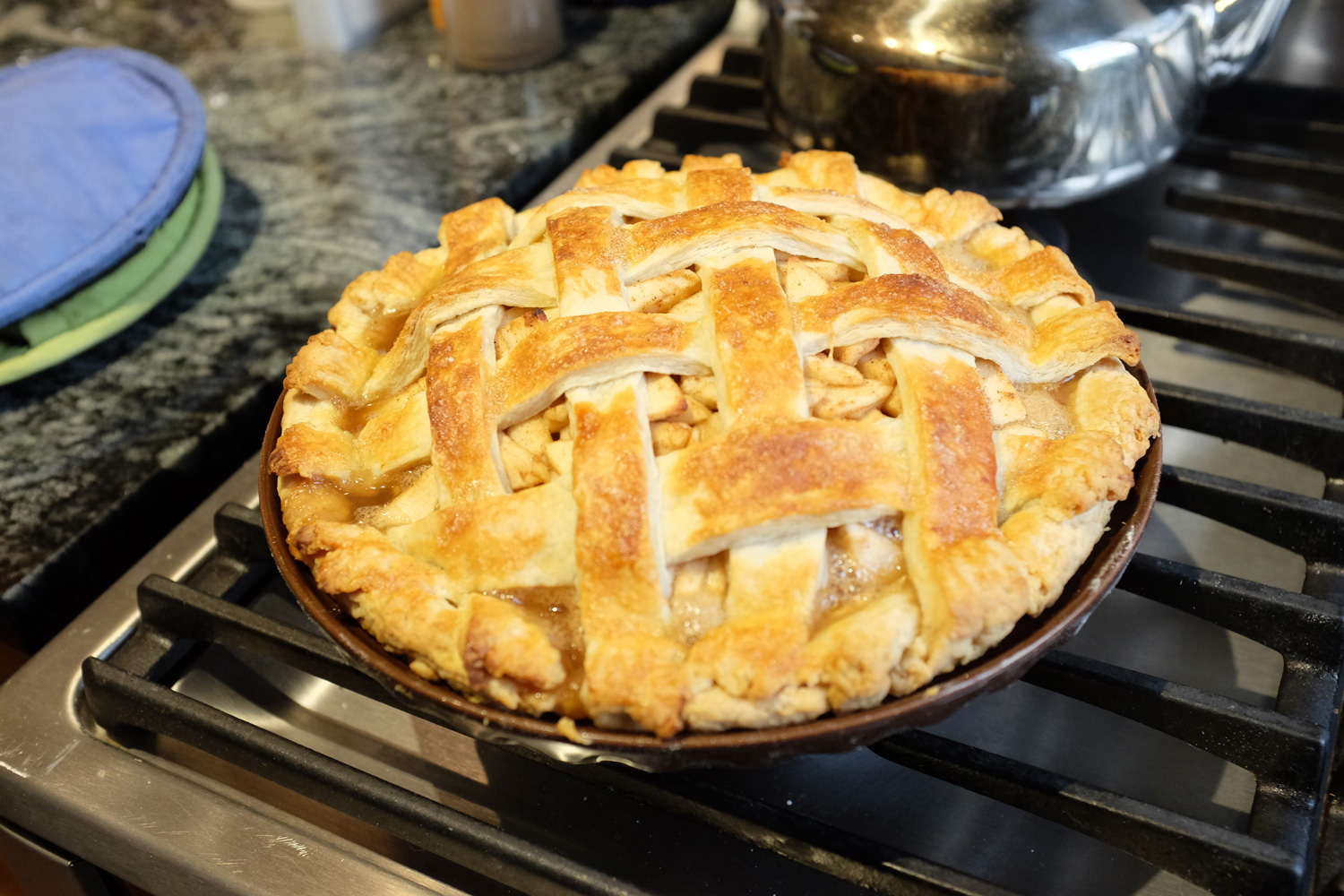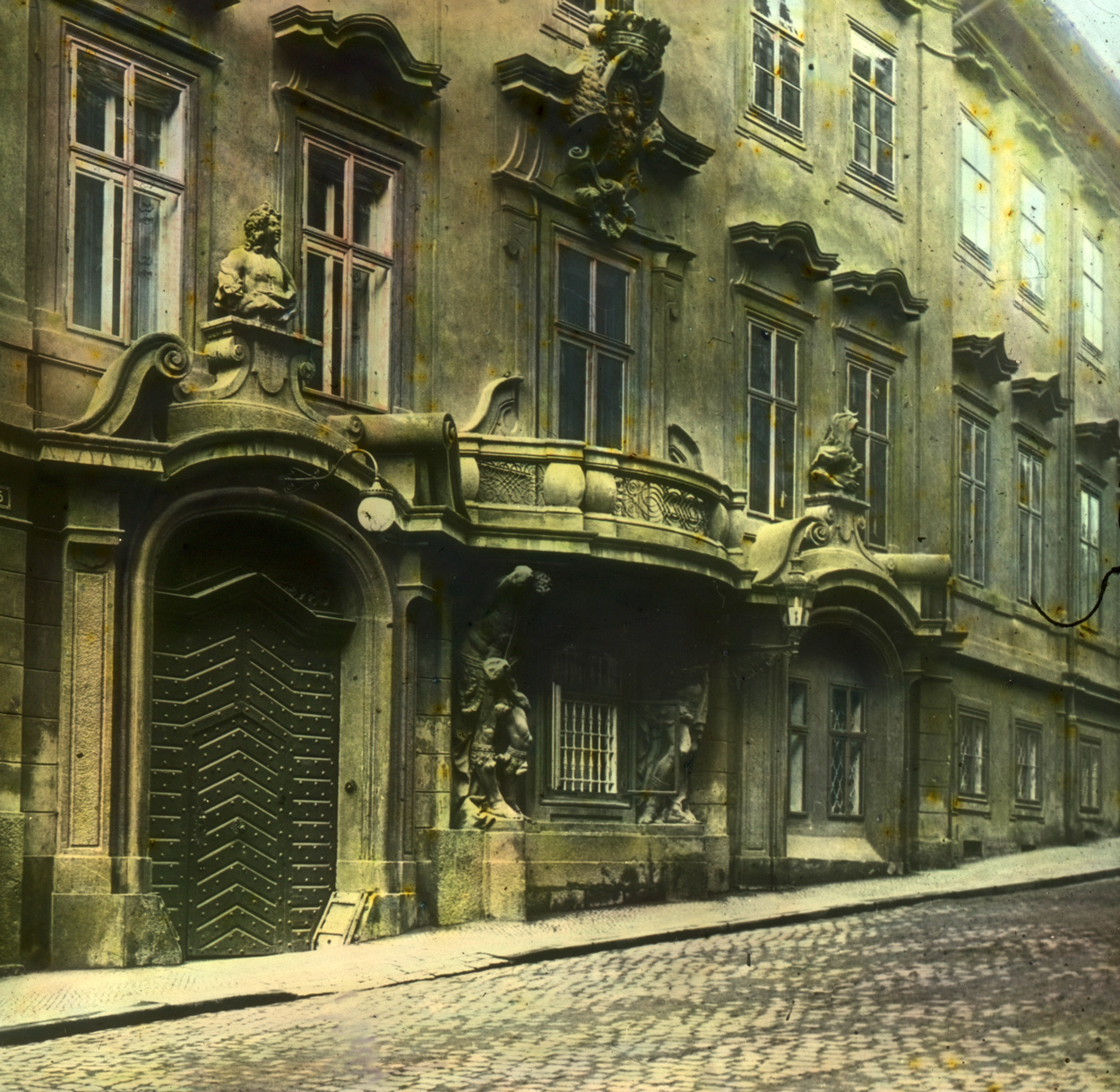Food is not improved by looking like a Calder mobile that has collapsed onto a plate.
nimrod (noun): a person fond of hunting
By hunting at all she had estranged the goodies, and by deserting she must scandalize the nimrods.
—Sylvia Townsend Warner, Summer Will Show
suther (verb): to sigh, to sough, to make the sound of wind in trees
. . . only the wise and timid pigeons, . . . leaving the green seclusion in which they had been “listening to the pleasant sutherings of the shade” . . .
—T. H. White, The Goshawk, quoting John Clare’s “The Woodpigeon’s Nest”
“The honourable estate of matrimony allowed one to read Don Juan in honour and ease, rather than by snatches in a cold bedroom.” —Warner, Summer Will Show
Pomegranate seeds gone opaque, like eyes with cataracts.
law (noun): an allowance in time or distance made to an animal that is to be hunted, or to a competitor in a race
He now had about seven yards law in what he was tied by.
—White, The Gowhawk
“On a retrospect, I observe that my long letter carries with it a quaint and magisterial air, and is very sententious.” —Gilbert White, A Natural History of Selborne
jink (verb): change direction quickly, dart, dodge
But the old buck jinked in a grass furrow.”
—White, Goshawk
One of the challenges that Twitter poses to information hygiene: it isn’t the same from day to day, and is qualitatively unlike itself from month to month. Is it good for you to read it? Past performance tells almost nothing, because it’s so protean.
rode (verb): of a woodcock, to perform a regular evening territorial flight during the breeding season
“I saw the long downward-pointing bill and the blunt, owl-like wings, and heard the thin whistle and throat croak of its roding call; a strange thing to hear in the cold November dusk.”
—J. A. Baker, The Peregrine
sporran (noun): a Scottish Highlander’s purse, worn at the front of the kilt
He carried on his study of pubic fig leaves (vine leaves in Rome, in Naples they were positive sporrans).
—Sylvia Townsend Warner, T. H. White
“. . . suitable to the composure of an animal said to be a whole month in performing one feat of copulation.” —G. White, in Selborne, on his tortoise
People talking on their cellphones while pooping in public restrooms is really the worst thing in the modern world.
“The rooms where I was born, the furniture which has been before my eyes all my life, a book case which has followed me about (like a faithful dog, only exceeding him in knowledge) wherever I have moved—old chairs, old tables, streets, squares, where I have sunned myself, my old school—these are my mistresses. Have I not enough, without your mountains? I do not envy you. I should pity you, did I not know, that the Mind will make friends of anything.” —Charles Lamb to William Wordsworth, 30 January 1801
“The first duty of an Author, I take it, is never to pay anything.” —Lamb to Wordsworth, 26 June 1806
On the enslavement of authors to booksellers: “Those fellows hate us. The reason I take to be, that, contrary to other trades, in which the Master gets all the credit (a Jeweller or Silversmith, for instance), and the Journeyman, who really does the fine work, is in the background: in our work the world gives all the credit to us, whom they consider as their Journeymen, and therefore do they hate us, and cheat us, and oppress us, and would wring the blood of us out, to put another sixpence in their mechanic pouches.” —Lamb to Bernard Barton, 9 January 1823
The simple catalogue of things
That reason would despise
Starts in the heart a thousand springs
Of half-forgotten joys.
—John Clare, “Childhood”
“I do not know that she was at all points a lady, but had Fate so willed it she would have been a thorough gentleman.” —Anthony Trollope, Can You Forgive Her?
I felt that I’d a right to song
And sung—but in a timid strain
Of fondness for my native plain
—John Clare, “Progress of Rhyme”
zarf (noun): a cup-shaped holder for a hot coffee cup, used in eastern Mediterranean, usually made of metal and with an ornamental design
He brought steaming conical cups in plastic zarfs, two by two, to the craving, sobering hands all around him.
—Jonathan Franzen, The Twenty-Seventh City
The nineteenth century admitted that the immortality of the soul was a fairy tale. The twenty-first will have to admit that the eternity of nature is one, too.
Dream: To someone who accused me of writing a book review that was too critical, I replied, “When I go to a bullfight, it’s to kill the bulls.”
Where ceneme becomes plereme.
“Yet now despair itself is mild . . .” —Shelley, “Stanzas Written in Dejection near Naples”
“In much wisdom is much grief, and he that increaseth knowledge increaseth sorrow.” —Ecclesiastes
“‘It seems to me that if a man can so train himself that he may live honestly and die fearlessly, he has done about as much as is necessary.’ ‘He has done a great deal, certainly,’ said Mr. Palliser. . . . He knew very well that he himself was working for others, and not for himself; and he was aware, though he had not analysed his own convictions on the matter, that good men struggle as they do in order that others, besides themselves, may live honestly, and, if possible, die fearlessly.” —Trollope, Can You Forgive Her?
Peter thinks the rear windshield wiper says, “Hawn-hawn,” and the front ones say, “Needles-eewee.”
“I always think that worldliness and sentimentality are rather like brandy and water. I don’t like either of them separately, but taken together they make a very nice drink.” —Trollope, Can You Forgive Her?
tessitura (noun): the range within which most tones of a voice part or melody lie
With its long runs and jagged melodic line, it made great demands on the singer, but Hubert Anvil was more than equal to them, hitting every note in the middle, moving from top to bottom of the wide tessitura with no loss of tone or power.
—Kingsley Amis, The Alteration
flaw (verb): to ruffle, as a gust of wind does
Every now and then a gust stooped and flawed the creek, brushing up a fine spray.
— Sylvia Townsend Warner, The True Heart
“My guess is that writers probably make fun, skilled, satisfactory, and seemingly considerate partners for other people. But that the experience for them is often rather lonely.” —David Foster Wallace, quoted by David Lipsky
There are two arts of photography. There is the manufacture of images with light, lenses, and other physical equipment. And then there is the selection and presentation of those images. In the early twentieth century, the first of these arts had great prestige and the second was largely invisible. But by the end of the century, photography had done to itself what it had previously done to painting, and merely technical prowess was too common to command attention. The prestige now goes to those with ideas about what images are, or can be.
“The new rebels might be the ones willing to risk the yawn, the rolled eyes, the cool smile, the nudged ribs, the parody of gifted ironists, the ‘how banal.'” —David Foster Wallace, quoted by D. T. Max in Every Love Story Is a Ghost Story
A resurrected Roman would find a great deal familiar if he visited Prospect Park on a summer weekend: shirtless men presiding over the burning of meat on portable tripods, to the accompaniment of music. But he would wonder why the sacrifices were being made without priests and without temples.
liceity (noun): legitimacy of a human action, e.g., of the administration of a sacrament; not the same as validity; used in a Roman Catholic context
There are two separate issues in the Filioque controversy in Christianity, the orthodoxy of the doctrine itself and the liceity of the interpolation of the phrase into the Nicene creed
—Wikipedia
metheglin (noun): spiced mead
Where metheglin was making he would linger round the tubs and vessels, begging a draught of what he called bee-wine.
—White, Selborne
The schoolteacher, gravelled by his schoolteaching mind: “Nothing comes to him, not spoiled by the sophisticating medium of moral uses.” —Lamb, “Old and New Schoolmaster”
privity (noun): the fact of being privy to something
They affirmed that what the Irish rebels did was done with my privity at least, if not by my commission.
—Charles I and John Gauden, Eikon Basilike
“I had grown to my desk, as it were, and the wood had entered into my soul.” —Lamb, “The Superannuated Man”
cantle (noun): a section or segment cut out of anything; a thick slice or cut of bread or cheese
I can spare to go to church now, without grudging the huge cantle which it used to seem to cut out of the holiday.
—Lamb, “The Superannuated Man”
“But the display of married happiness . . . is throughout pure, unrecompensed, unqualified insult.” —Lamb, “A Bachelor’s Complaint”
“I had imagined that the world’s end was at the edge of the orison and that a day’s journey was able to find it. So I went on with my heart full of hopes, pleasures, and discoveries, expecting when I got to the brink of the world that I could look down like looking into a large pit and see into its secrets the same as I believed I could see heaven by looking into the water. So I eagerly wandered on and rambled among the furze the whole day till I got out of my knowledge when the very wildflowers and birds seemed to forget me and I imagined they were the inhabitants of new countries. The very sun seemed to be a new one and shining in a different quarter of the sky. Still I felt no fear. My wonder-seeking happiness had no room for it. I was finding new wonders every minute and was walking in a new world and expected the world’s end by and by but it never came often wondering to myself that I had not found the end of the old one.” —Clare, “Autobiographical Fragments”
“People who have tried it, tell me that a clear conscience makes you very happy and contented; but a full stomach does the business quite as well, and is cheaper, and more easily obtained.” —Jerome K. Jerome, Three Men in a Boat
“She measured out consideration as if it had been a yard of pretty ribbon.” —Henry James, The Outcry
“Remember.” —Charles I (his last word)
Say, maiden, wilt thou go with me
Through this sad non-identity?
—Clare, “An Invite to Eternity”
“‘Oh, they know things in the States,’ Hugh cheerfully agreed, ‘so independently of their happening!'” —James, The Outcry
A lesser-remarked sign of age: One’s fingernails used to be smooth curves, and are now polyhedra.
“The community included a nudist and a man who refused to eat tubers because any vegetable that grows downward displays questionable tendencies.” —Chris Jennings, on Fruitlands, in Paradise Now
“He seemed not to speak, but to be spoken from.” —Charles Lamb, “A Quakers’ Meeting”
caudle (noun): a drink of warm gruel, containing spice, sugar, and wine, given to invalids
On the twentieth day of her lying-in, she died of kindness and caudle.
—Robert Bage, Hermsprong
“Chastity, they say, is like unto time, which, being once lost, can no more be recovered.” —Mercy Harvey to Lord Surrey, her would-be seducer, quoted in Virginia Woolf’s “Strange Elizabethans”
“Good memories, good memories,” the old men in the gym say to each other, as a greeting.
“Authors in general know money does not make their happiness; and thence conclude, rather too hastily, it could not make that of other people.” —Bage, Hermsprong
“The beauty of his work consisted in the skill with which he evaded questions of principle.” —Henry Adams, Democracy
“There were so many spare hours that on looking back it would almost seem as if our planet must have made slower revolutions then.” —Georgiana Bruce Kirby, Years of Experience
The hipsters were sulky about the dogs frolicking in the park’s off-leash meadows this morning. They had got up early to photograph their drone, and now dogs might get, uninvited, into the pictures.
Fortune is most and strangest evermore
Where least foreknowing or intelligence
Is in the man; and, son, of wit or lore
Since thou art weak and feeble, lo, therefore
The more thou art in danger and commune
With her that clerks clepen so fortune.
—James I of Scotland, The Kingis Quair [The King’s Quire]
“Practical freedom from prediction and manipulation by others (psychologists or dictators or whomever) is best achieved by the acquisition of knowledge in general. The more you know, the harder you are to control.” —Daniel Dennett, Elbow Room
“I am a straw upon the surface of the deep, and am tossed in all directions by the elephants.” —Mr. Micawber
habergeon (noun): a sleeveless jacket of armor
Hard by the lilied Nile I saw
A duskish river-dragon stretched along,
The brown habergeon of his limbs enamelled
With sanguine almandines and rainy pearl.
—Thomas Lovell Beddoes, “A Crocodile”
“I know what really goes on inside me. I’ll let you in on something. There isn’t a man living who doesn’t. All this business, ‘Know thyself’! Everybody knows but nobody wants to admit.” —Saul Bellow, The Victim
After taking the previous note, on the subway, I looked up to see a boy across the car staring at me as if he’d just seen a ghost. I guess the taking of notes by hand isn’t a very common sight any more.
The key to The Martian (the movie): It’s how the Internet makes us feel—alone on a desert planet. It’s an entire movie about talking to oneself and about sending and receiving text messages. Inner desolation, exteriorized.
“We don’t seem to hear nothing about the unpardonable sin now, but you may say it was not uncommon then.” —Sarah Orne Jewett, The Country of Pointed Firs
“Translating oneself is writing in fetters.” —Pierre Legouis, Andrew Marvell
“Spirits and fairies cannot be represented, they cannot even be painted—they can only be believed.” —Charles Lamb, The Tragedies of Shakespeare
“But to live in past ages is very expensive; you can’t do it on less than two thousand a year.” —George Orwell, A Clergyman’s Daughter
“It was only now, after becoming aware of most of the things about her, that she became aware of herself. Hitherto she had been as it were a pair of eyes with a receptive but purely impersonal brain behind them. But now, with a curious little shock, she discovered her separate and unique existence; she could feel herself existing; it was as though something within her were exclaiming, ‘I am I!'” —Orwell, A Clergyman’s Daughter, deftly describing the little “click” that does not happen when one wakes up into the depersonalization of a panic attack
The closing of the American heart: In the Middle Ages, people saw hangings, beheadings, and disfigured corpses often, and sympathy was sharply limited and rarely went beyond one’s intimates. In the eighteenth century Voltaire proposed that sympathy could be an instrument of virtue and reform, inducing people to feel injustice done to others. By the nineteenth century, sympathy had become a faculty to be nurtured and developed, especially in children, whose sensibilities needed to be shielded from the gratuitous sight of people in extremis, which would coarsen and jade (it’s meant to be progress for Oliver Twist to move from a vivid life of street crime to the eventlessness of Victorian propriety). The delicacy was not for its own sake; it was to preserve a moral fineness. Today, once again, the sight of torture and death has become common, and we have lost the idea that one ought to protect one’s sensibility in order to preserve one’s faculty of doing good. Sympathy, correspondingly, is receding.
“Earth-worms, though in appearance a small and despicable link in the chain of Nature, yet, if lost, would make a lamentable chasm.” —White, Selborne
Forgive us our micro-aggressions, as we forgive those who micro-aggress against us.
“Worms . . . are hermaphrodites, and much addicted to venery, and consequently very prolific.” —White, Selborne
“When he was puzzled or in difficulties, his moustaches seemed to bristle forward, giving him the appearance of a well-meaning but exceptionally brainless prawn.” —Orwell, Clergyman’s Daughter
All studium and no punctum makes Jonny a dull boy.
henway: a nonexistent tool that a novice worker is asked to go fetch, leading to the question, “What’s a henway?” Answer: About two and a half pounds. Cf. “Maybe we could touch base next week via Updog?”
How calculated the sentiment looks when one watches over the shoulder of a woman frenetically sampling the options for updating her Facebook profile picture so that it will express solidarity with victims of last night’s atrocity.
Does the revolt of Micawber against Heep (“Because I—in short, choose”) prefigure Bartleby’s “I would prefer not to”?
“The fact that many of us resent injuries on behalf of others is generally a convenient way of indulging our resements with an appearance of justice.” —Charles Williams, quoted in Grevel Lindop, The Third Inkling
doggo: without moving or making a sound, doing nothing to draw attention
The inhabitants lay doggo.
—Sybille Bedford, A Visit to Don Otavio
A robot’s meditation: I’m thinking, therefore I’m on.
“Constanza says that the novel plays such a part in shaping social behaviour. Perhaps the novel has not caught up?” —Sybille Bedford, A Compass Error
The saddest 7 words in the English language: I hope we can still be friends
The saddest 4: First in a series
The saddest 2: What party?
The saddest 1: carob
“But I made the unfortunate mistake, for a writer, of first having been Mr. Jake Barnes. So it is not going to be splendid and cool and detached after all.” —Ernest Hemingway, in a deleted second chapter of The Sun Also Rises
“Editors are troubled with nice amendings and if Doctors were as fond of Amputations as they are of altering and correcting the world would have nothing but cripples.” —John Clare, journal, 30 April 1825
“The cycle of manic enthusiasm, then fear, then Partei solutions of a desperate type—well, the point he got across was that all this tends to bring the most irresponsible and reckless aspirants to the top.” —Philip K. Dick, The Man in the High Castle
“I believe that when a scholar traffics in antihumanist theories for purposes of professional advancement, his or her private self stands in the doorway, listening in.” —Lisa Ruddick, “When Nothing Is Cool”
“Did I tell you about my discovery in Larkin Studies?” —Philip Larkin to Monica Jones, 21 November 1971
“I could have written longer notes, for the art of writing notes is not of difficult attainment.” —Samuel Johnson





